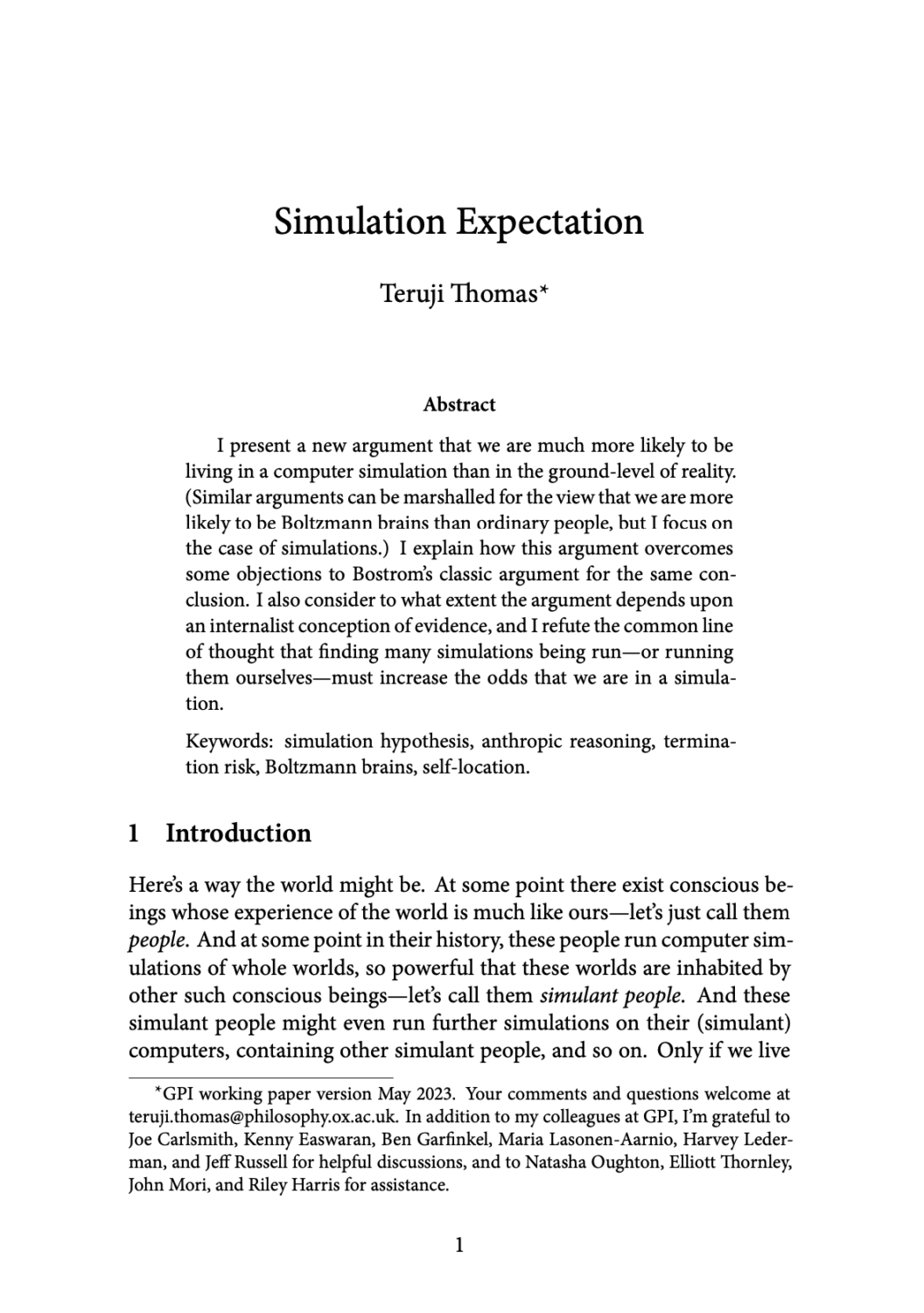Simulation expectation
Teruji Thomas (Global Priorities Institute, University of Oxford)
GPI Working Paper No. 16-2021, published at Erkenntnis
I present a new argument that we are much more likely to be living in a computer simulation than in the ground-level of reality. (Similar arguments can be marshalled for the view that we are more likely to be Boltzmann brains than ordinary people, but I focus on the case of simulations.) I explain how this argument overcomes some objections to Bostrom’s classic argument for the same conclusion. I also consider to what extent the argument depends upon an internalist conception of evidence, and I refute the common line of thought that finding many simulations being run—or running them ourselves—must increase the odds that we are in a simulation.
Other working papers
Maximal cluelessness – Andreas Mogensen (Global Priorities Institute, Oxford University)
I argue that many of the priority rankings that have been proposed by effective altruists seem to be in tension with apparently reasonable assumptions about the rational pursuit of our aims in the face of uncertainty. The particular issue on which I focus arises from recognition of the overwhelming importance…
Three mistakes in the moral mathematics of existential risk – David Thorstad (Global Priorities Institute, University of Oxford)
Longtermists have recently argued that it is overwhelmingly important to do what we can to mitigate existential risks to humanity. I consider three mistakes that are often made in calculating the value of existential risk mitigation: focusing on cumulative risk rather than period risk; ignoring background risk; and neglecting population dynamics. I show how correcting these mistakes pushes the value of existential risk mitigation substantially below leading estimates, potentially low enough to…
The paralysis argument – William MacAskill, Andreas Mogensen (Global Priorities Institute, Oxford University)
Given plausible assumptions about the long-run impact of our everyday actions, we show that standard non-consequentialist constraints on doing harm entail that we should try to do as little as possible in our lives. We call this the Paralysis Argument. After laying out the argument, we consider and respond to…

